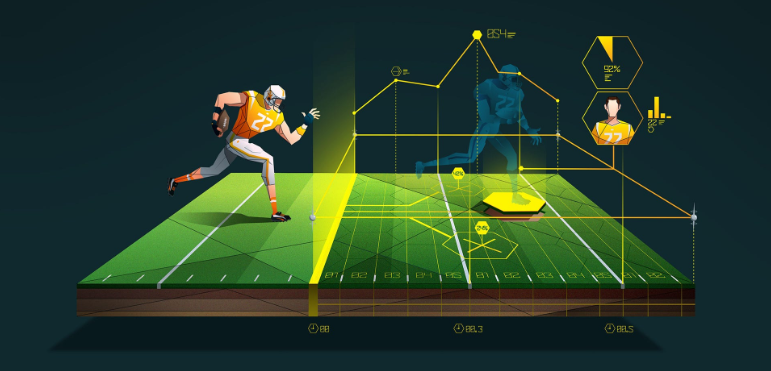
Artificial intelligence (AI) has shown great potential in multiple industries, especially in sports analytics . The application of AI technology in sports analytics is revolutionizing sports performance, team strategy, spectator experience, and business models. Here are some of the key application areas of AI in sports analytics.
AI can accurately track every movement of athletes through real-time data collection and analysis. These data include athletes' running speed, physical consumption, sports techniques, etc. Through machine learning algorithms, coaches and athletes can obtain personalized training feedback. AI can also predict athletes' fatigue status and injury risks, help formulate more scientific training plans, and avoid injuries caused by overtraining.
AI can analyze a large amount of game data, extract key tactical information from it, and help coaches and teams make accurate decisions. For example, AI can automatically identify the opponent's tactical changes and player positions, and provide tactical adjustment suggestions. This allows coaches to react quickly during the game and adjust strategies based on real-time data to improve the game winning rate.
The application of AI in games is not limited to pre-game strategies, real-time data analysis during the game is also crucial. AI uses video analysis, sensors and big data analysis technology to monitor key events in the game in real time, such as offensive opportunities, fouls and defensive holes, providing coaches, players and commentators with instant feedback to assist decision-making. This makes tactical and strategic adjustments to the game more flexible and efficient.
AI is reshaping the spectator experience at sports events. By analyzing viewers’ interests and viewing history, AI can recommend personalized content and events for each fan. For example, AI can automatically generate game highlights, provide real-time statistical data or dynamic analysis charts, and provide more interactive content for viewers. This personalization and interactivity increases viewer engagement and makes them more connected to the game.
AI also plays an important role in the medical care and rehabilitation of athletes. By continuously monitoring athletes’ physiological data and performance, AI can predict and detect potential injury risks. By analyzing the athlete's gait, posture and exercise load, AI helps the medical team develop a personalized rehabilitation plan to ensure that the athlete's health and competitive status are adjusted in a timely manner.
The application of artificial intelligence in sports analysis is gradually penetrating into various fields. From improving the individual performance of athletes to optimizing team tactics to enhancing the audience experience, AI not only improves the competitive level of sports events, but also brings new ways of interaction to fans. With the continuous advancement of AI technology, its application in the sports field will be more extensive in the future, promoting the comprehensive upgrade of the sports industry.